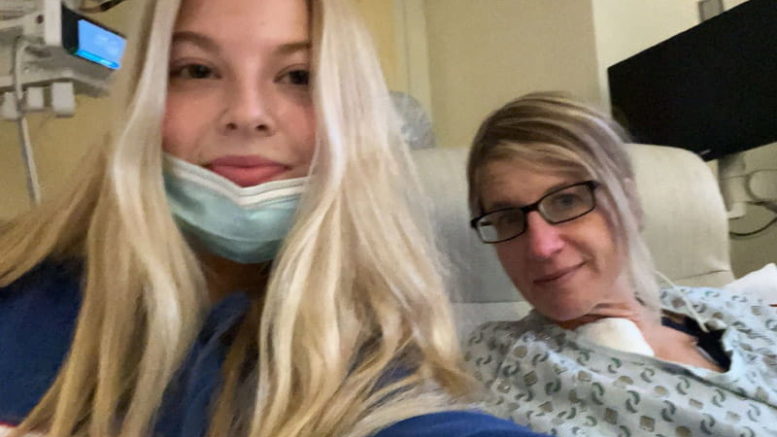One morning during a routine drive to high school, Shelley Marshall attempted to engage in conversation with her daughter about her field hockey team. However, her words emerged in a garbled and incomprehensible manner, prompting concern from her daughter, who questioned if her mother was experiencing a stroke. Despite her outward appearance showing no visible signs of stroke, Marshall, troubled by recent incidents of slurred speech and other unusual symptoms, decided to err on the side of caution and seek medical attention.
Arriving at the hospital where she and her boyfriend, Lyle Sarver, both worked, Marshall underwent a brain scan that revealed alarming blockages and a tear in one of her carotid arteries, critical blood vessels supplying the brain. Although Marshall initially felt fine, her symptoms gradually escalated while awaiting further diagnostic procedures, including worsening speech difficulties, severe headache, and partial paralysis on her right side.
As Marshall’s condition deteriorated, her loved ones, including her daughter Kennley, witnessed her struggle with excruciating pain and the fear of potential lasting deficits. Subsequent angiogram and surgical interventions aimed to clear the blockages and restore blood flow to her brain, culminating in the placement of three stents. Despite the lengthy and complex procedure, Marshall exhibited promising signs of recovery, with her speech gradually returning to normalcy, providing relief to her worried family.
Following her stroke, Marshall embarked on a two-month hiatus from work to focus on recuperation and regain her strength. Despite experiencing slight memory issues post-stroke, Marshall considers herself fortunate to have avoided significant cognitive impairments. Doctors hypothesized a potential link between her severe COVID-19 infection and the stroke, prompting Marshall to remain vigilant in mitigating her risk of further health complications.
Despite her harrowing experience, Marshall remains grateful for her recovery and continues to prioritize preventive measures against COVID-19, mindful of the potential health risks it poses. Her journey serves as a reminder of the importance of prompt medical attention and proactive health management in navigating unforeseen health challenges.

